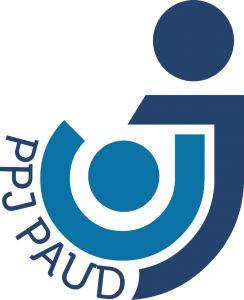BIMBINGAN KELOMPOK DENGAN TEKNIK PERMAINAN TRADISIONAL UNTUK MENINGKATKAN PENYESUAIAN SOSIAL
DOI:
https://doi.org/10.30736/jce.v1i1.2Keywords:
Social Adjustment, Group Guidance, Traditional GamesAbstract
This study aims to: (1) find out the implementation of group guidance and social adjustment level of grade 1 students of SDN Kedondong 01, (2) know the effectiveness of group guidance with traditional games to improve students' social adjustment. This is a quantitative research using pre-test post-test one group design. The data analysis technique used is Wilcoxon's Signed Rank Test which belongs to non parametric statistic. Based on the significant level 5% and N = 8 data analysis showed difference of scores between before and after implementing group guidance with traditional games technique. The result of field test shows that the group guidance model with traditional learning technique is effective to improve social adjustment of grade I students of SDN Kedondong 01. This is indicated by the change of social adjustment level of students before and after the implementation. that is an increase of 19%. Therefore it could be suggested to the counselor in elementary school to improve the utilization of traditional games in the implementation of group guidance as such a legacy to the scientific development.References
Amti, Erman dan Prayitno. Layanan bimbingan dan konseling kelompok. Padang: Jurusan Bimbingan dan Konseling Fakultas Ilmu Pendidikan Universitas Negeri Padang. 2004.
Arum Widhiyanti Metra Putri, Dewi. Gestalt Play Therapy Untuk Menangani Masalah Penyesuaian Sosial: Studi Kasus Pada Siswa Taman Kanak-Kanak. Seminar Nasional Riset Inovatif II. Jurusan Bimbingan Konseling, Universitas Pendidikan Ganesha, Singaraja, Bali. 2014.
Dwi Setyoningsih, Yunita . Model Bimbingan Kelompok Teknik Permainan Berbasis Nilai Lokal Untuk Meningkatkan Penyesuaian Sosial. Tesis. BK Unnes: Tidak diterbitkan. 2012.
Furqon. Konsep dan Aplikasi Bimbingan Konseling di Sekolah Dasar, Bandung: Pustaka Bani Quraisy, 2005.
Kurniati, Euis. Program Bimbingan untuk Mengembangkan Keterampilan Sosial Anak Melalui Permainan Tradisional. Tesis. PPB FIP UPI: tidak diterbitkan. 2006
Rahmawati, Yeni. “Pengaruh Penerapan Bimbingan Kelompok Teknik Permainan Pengembangan Diri Terhadap Kecenderungan Tngkat Percaya Diri Siswa Kelas 1-6 SMA Negeri 1 Jombang. Skipsi. Tidak Diterbitkan. UNESA University Press, 2004.
Romlah, Tatiek. Teori dan Praktek Bimbingan Kelompok, Surabaya: Universitas Negeri Malang, 2006.
Sugiyono, Metode Penelitian Kuantitatif Kualitatif dan RD, Bandung: Alfabeta, 2011.
--------, Metode Penelitian Bisnis, Bandung: CV Alfabeta, 2009.
Surya, Moh. dan Rochman Natawidjaya. Pengantar Bimbingan dan Penyuluhan, Jakarta: Universitas Terbuka, 2008.
Tohirin. Bimbingan Konseling di Sekolah dan Madrasah, Jakarta: Raja Grafindo Persada. 2007.
Wijaya, Juhana. Psikologi Bimbingan, Bandung: PT Eresco, 2008.
Syamsu, Yusuf. Perkembangan Anak dan Remaja: Bandung. PT. Rineka Cipta. 2006
Downloads
Published
How to Cite
Issue
Section
License
Please find the rights and licenses in JCE (Journal of Childhood Education). By submitting the article/manuscript of the article, the author(s) agree with this policy. No specific document sign-off is required.
1. License
Use of articles will be governed by the Creative Commons Attribution - ShareAlike license as currently displayed on Creative Commons Attribution-ShareAlike 4.0 International License.
2. Author(s)' Warranties
The author warrants that the article is original, written by stated author(s), has not been published before, contains no unlawful statements, does not infringe the rights of others, is subject to copyright that is vested exclusively in the author and free of any third party rights, and that any necessary written permissions to quote from other sources have been obtained by the author(s).
3. User Rights
JCE (Journal of Childhood Education)'s spirit is to disseminate articles published are as free as possible but there is a little payment for publication. Under the Creative Commons license, JCE (Journal of Childhood Education) permits users to copy, distribute, display, and perform the work for commercial purposes. Users will also need to attribute authors and JCE (Journal of Childhood Education) on distributing works in the journal and other media of publications.
4. Co-Authorship
If the article was jointly prepared by more than one author, any authors submitting the manuscript warrants that he/she has been authorized by all co-authors to be agreed on this copyright and license notice (agreement) on their behalf, and agrees to inform his/her co-authors of the terms of this policy. JCE (Journal of Childhood Education) will not be held liable for anything that may arise due to the author(s) internal dispute. JCE (Journal of Childhood Education) will only communicate with the corresponding author.
5. Miscellaneous
JCE (Journal of Childhood Education) will publish the article (or have it published) in the journal if the article’s editorial process is successfully completed. JCE (Journal of Childhood Education)'s editors may modify the article to a style of punctuation, spelling, capitalization, referencing and usage that deems appropriate. The author acknowledges that the article may be published so that it will be publicly accessible and such access will be free of charge for the readers as mentioned in point 3.
JCE (Journal of Childhood Education) by Universitas Islam Lamongan is licensed under a Creative Commons Attribution-ShareAlike 4.0 International License.Based on a work at http://journalfai.unisla.ac.id/index.php/jce.












